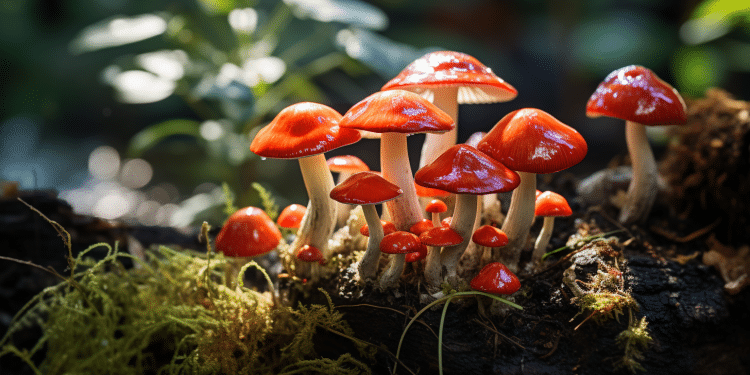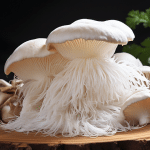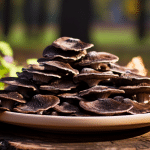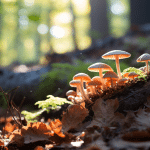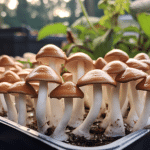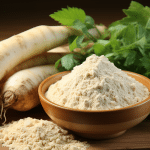Legality Magic Mushrooms 2023 Canada: Can You Enjoy Them Safely?
Psilocybin, the psychoactive compound in magic mushrooms, is attracting increasing interest due to its therapeutic properties. However, the legal status of psilocybin varies from jurisdiction to jurisdiction. So, if you ever wondered are magic mushrooms legal in canada, our article will look at the current permissibility status of psilocybin in Canada and shed some light on recent developments there.
What Is Psilocybin?
Psilocybin is a naturally occurring psychedelic compound found in over 200 species of mushrooms, often referred to as “magic mushrooms”. It is known for its potent psychoactive effects and has been used for centuries in spiritual and religious practices.
When consumed, psilocybin is converted by the body into psilocin, which binds to serotonin receptors in the brain, leading to altered perception, mood, and thought. This can result in a range of experiences, from euphoria and spiritual revelations to anxiety and paranoia.
Research has shown that psilocybin may have therapeutic applications in the treatment of mental health disorders, such as depression, anxiety, and addiction. Studies have found that a single dose of psilocybin, when administered in a controlled setting, can lead to long-term improvements in mood and behavior.
What Effects of Microdosing Magic Mushrooms Have?
The effects of psilocybin can vary widely depending on factors such as dosage, set and setting, and individual physiology. Generally, the effects of magic mushrooms can be divided into three categories: physical, psychological, and spiritual.
Physically, psilocybin can cause a range of sensations such as nausea, increased heart rate, and dilated pupils. These effects are typically mild and short-lived, and do not pose a significant health risk.
Psychologically, psilocybin can lead to altered perception, mood, and thought. Users may experience visual and auditory hallucinations, changes in time perception, and a sense of interconnectedness with the world around them. These effects can be intense and can last several hours, depending on the dosage.
Spiritually, magic mushrooms have a long history of use in spiritual and religious practices. Many users report profound spiritual experiences and a sense of connection to a higher power or the universe. These experiences can be life-changing and transformative, leading to increased empathy, compassion, and a sense of purpose.
Despite the potential benefits of psilocybin, its recreational use can be dangerous, especially with such potent strain as penis envy mushroom. High doses can lead to intense, overwhelming experiences that can be difficult to manage. Users may also experience negative psychological effects such as paranoia, anxiety, and panic attacks.
Legal History of Psilocybin in Canada
Psilocybin was a Schedule III substance under the Canadian Controlled Drugs and Substances Act. This triage meant that possessing, cultivating and distributing magic mushrooms containing psilocybin for recreational purposes were prohibited.
The legal history of psilocybin in Canada has seen many significant changes. Below we will look at the main developments:
In 2001, psilocybin qualified as a Schedule III substance under the Canadian Controlled Drugs and Substances Act. A therapeutic use exemption was also introduced.
In 2002, Health Canada introduced the Medical Marijuana Access Regulation (MMAR), which allowed certain individuals with specific medical conditions to access and use marijuana only for therapeutic purposes. Although microdosing mushrooms were not explicitly included on this list, the rules left room for possible therapeutic use.
2013 a major legal challenge arose when four people with terminal illnesses sought access to psilocybin therapy for end-of-life care. Known as the “TheraPsil case,” it was said that denying access to psilocybin violated the rights to life, liberty and security of the person under the Canadian Charter of Rights and Freedoms.
In August 2020, Health Canada’s Minister of Health made an exception for four terminally ill patients in the TheraPsil case, allowing them to use psilocybin for end-of-life treatment. This release was a milestone, recognizing the potential therapeutic benefits of psilocybin and setting a precedent for future legal decisions.
Legal challenges continue after its release in 2020 and the debate surrounding the decriminalization and medical use of psilocybin in Canada. Health Canada has recognized the need for further research and has authorized several clinical trials examining the safety and effectiveness of psilocybin therapy for mental illness.
After its release in 2020, legal challenges and discussions continue around the decriminalization and medical use of psilocybin in Canada. Health Canada has recognized further research as mandatory. It has given the go-ahead for several clinical trials examining the safety and effectiveness of psilocybin-assisted therapy for mental illnesses of various kinds.
In March 2021, a significant milestone was reached when the Secretary of Health authorized several health professionals to possess and use psilocybin for training and development. This decision was another step toward recognizing the potential benefits and expanding the legal framework for psilocybin use.
Since then, discussions and legal wrangling over the decriminalization of psilocybin in Canada have continued. Health Canada has recognized the importance of further research. It has authorized several clinical trials to investigate the safety and, most importantly, the efficacy of psilocybin therapy for various mental illnesses of varying severity.
One study conducted by Johns Hopkins University found that psilocybin-assisted therapy resulted in significant reductions in depression and anxiety symptoms in cancer patients. Another study conducted at Imperial College London found that psilocybin treatment led to a significant reduction in alcohol consumption among individuals with alcohol addiction.
However, it is essential to note that these exceptions indicate a growing recognition and understanding of psilocybin’s therapeutic potential even in everyday human use. Still, the recreational microdosing of magic mushrooms remains illegal in Canada.
The Future of Psilocybin in Canada
The development of the legalization of blue meanies mushroom and other strains in the masses is taking great strides. This is due to both potential advances and ongoing controversy. Here are some aspects to consider:
- Increase in the number of studies and clinical trials. There has been a significant increase in research and clinical trials aimed at psilocybin therapy for various mental illnesses. The Department of Health has authorized several studies to investigate the safety, efficacy, and potential therapeutic benefits of psilocybin. These studies provide the world with scientific evidence to support the integration of psilocybin into the foundations of medical practice;
- Decriminalization advocacy. A growing movement advocating complete freedom for psilocybin and magic mushrooms has emerged. Proponents argue that decriminalizing personal use and possession can promote research, reduce harm, and create a more straightforward approach to drug policy;
- Regulatory framework and access. As research progresses, discussions are underway to develop a regulatory framework for access to psilocybin. This framework seeks to establish guidelines and standards for medical or therapeutic use that ensure safety, professional oversight, and informed consent;
- Public opinion and awareness. Public opinion about psychedelics, including psilocybin, is changing. Growing awareness of the potential benefits of psilocybin therapy and its role in treating mental illness has generated more open discussion. As information becomes more readily available and stigma diminishes, public perception of psilocybin may continue to shift in favour of recognition of its potential therapeutic value.
- International events. It is also essential to consider the global landscape surrounding psilocybin. Some countries, such as the U.S. and some European states, have taken steps to decriminalize, create a regulatory framework, or exclude psilocybin from scientific research. International developments may influence discussions and policies regarding psilocybin in Canada.
It is important to note that while exemptions and research permits have increased access to psilocybin in specific contexts, the recreational use of magic mushrooms containing psilocybin remains illegal in Canada. The legal framework related to psilocybin continues to evolve, and efforts are underway to explore regulated access, potential decriminalization, and therapeutic applications.
Some people think that the recreational use of psilocybin can be dangerous. Because there is no way to know the potency or purity of mushrooms purchased on the black market, users run the risk of consuming a dangerous dose or ingesting poisonous mushrooms. To avoid that, we recommend buy dried magic mushrooms online in Canada from reputable sources, like Funguyz. People must be informed about magic mushrooms current legal status and adhere to responsible practices by seeking guidance from healthcare providers and participating in authorized research or treatment programs.
Position of Other Activists and Authorities
Larsen’s activities are disapproved of by the TheraPsil coalition, which fights for compassionate access to psychedelic therapy. Spencer Howell, head of the organization, notes that Canadians approved for medical use of psilocybin are forced to grow their mushrooms or buy them from underground stores.
“Patients don’t know what’s inside the substances they have to buy, and it’s not as safe as it should be, – he says – We’ve already seen hundreds of patients on death’s doorstep die before they can access a legal form of the drug.”
The Final Word
Psilocybin has a long history of use in spiritual and religious practices. Indigenous cultures in South America have used mushrooms containing psilocybin for centuries in their traditional healing ceremonies. In the 1950s and 60s, psilocybin and other psychedelics gained popularity in the Western world as a tool for personal growth and spiritual exploration.
Despite its potential therapeutic benefits, psilocybin remains a Schedule I substance under the Controlled Substances Act in the United States, meaning it is considered to have a high potential for abuse and no accepted medical use. However, there is a growing movement to reclassify psilocybin and other psychedelics for medical purposes.
